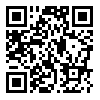Received: 2010/06/28 | Accepted: 2014/06/24 | Published: 2014/06/24
URL: http://ijwph.ir/article-1-72-en.html
BibTeX | RIS | EndNote | Medlars | ProCite | Reference Manager | RefWorks
Send citation to:
2- Janbazan Medical and Engineering Research Center (JMERC),Tehran, Iran
Introduction: during Iran-Iraq war about 40000 veterans and civilians were captured by Iraqis government. The aim of this survey was to assess employment problems and issues in the prisoners of war after about 20 years of returning.
Methods: This qualitave study was based on focus-group discussion in Iranian prisoners of war after returning. The 7 meeting was held to understand the types and consequences of the prisoner’s reentry problems. 10 prisoners of war were invited to participate in the study. The problems were listed by using brain storming. Then the problems were categorized. In order to prioritize the problems each prisoner handicapped the problems from 1-10. The highest scores considered as the most important problems.
Results:The mean age of the cases was 47 with the age range of 41-55 years. Duration of capturing was between 48-118 months. The most common employment problems was early retirement, unemployment but receiving complete pension, lack of regulatory system about prisoner of war employment laws and less informed prisoner of war on existent employment laws, respectively.
Conclusion: The results this study revealed that the prisoner of war face different types employment and unemployment problems. It is important to accomplish a further study in order to assess the magnitude of this finding.








